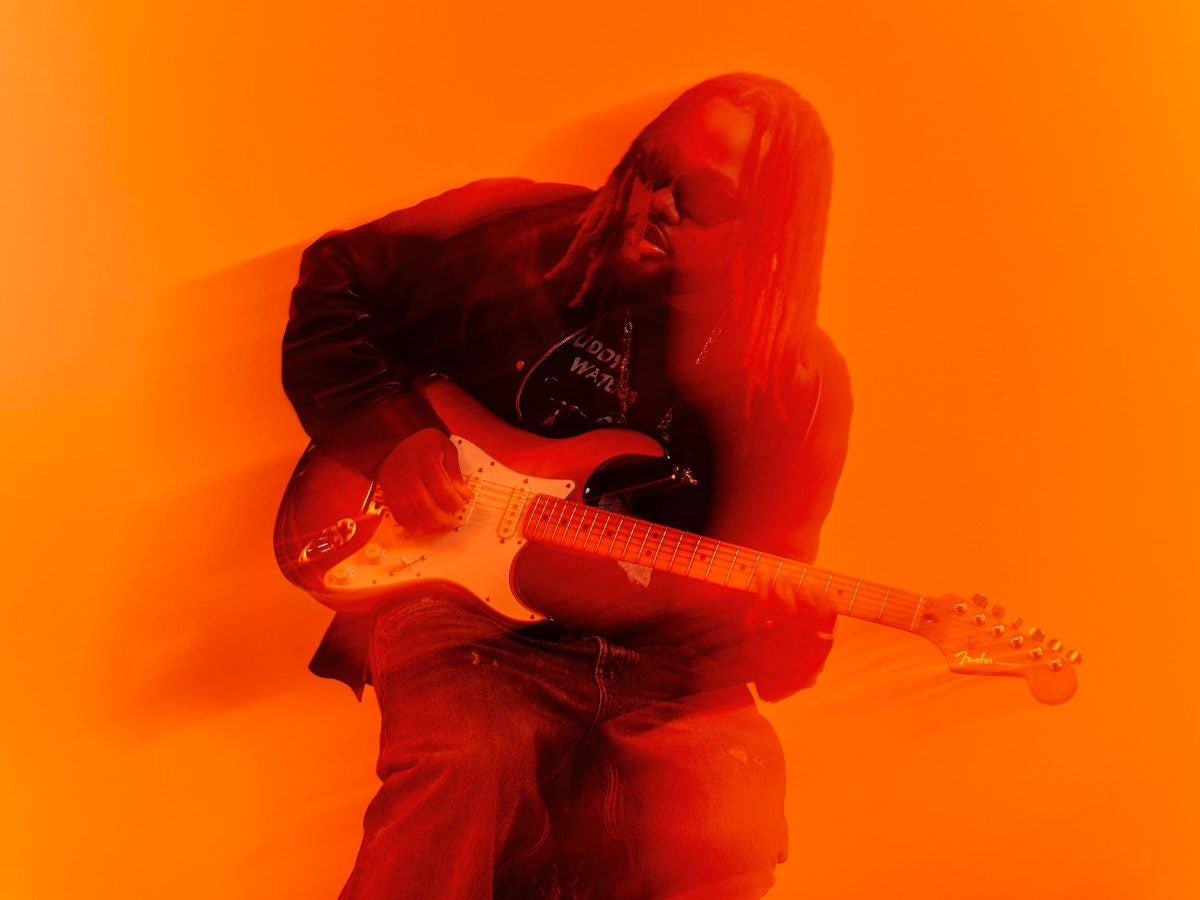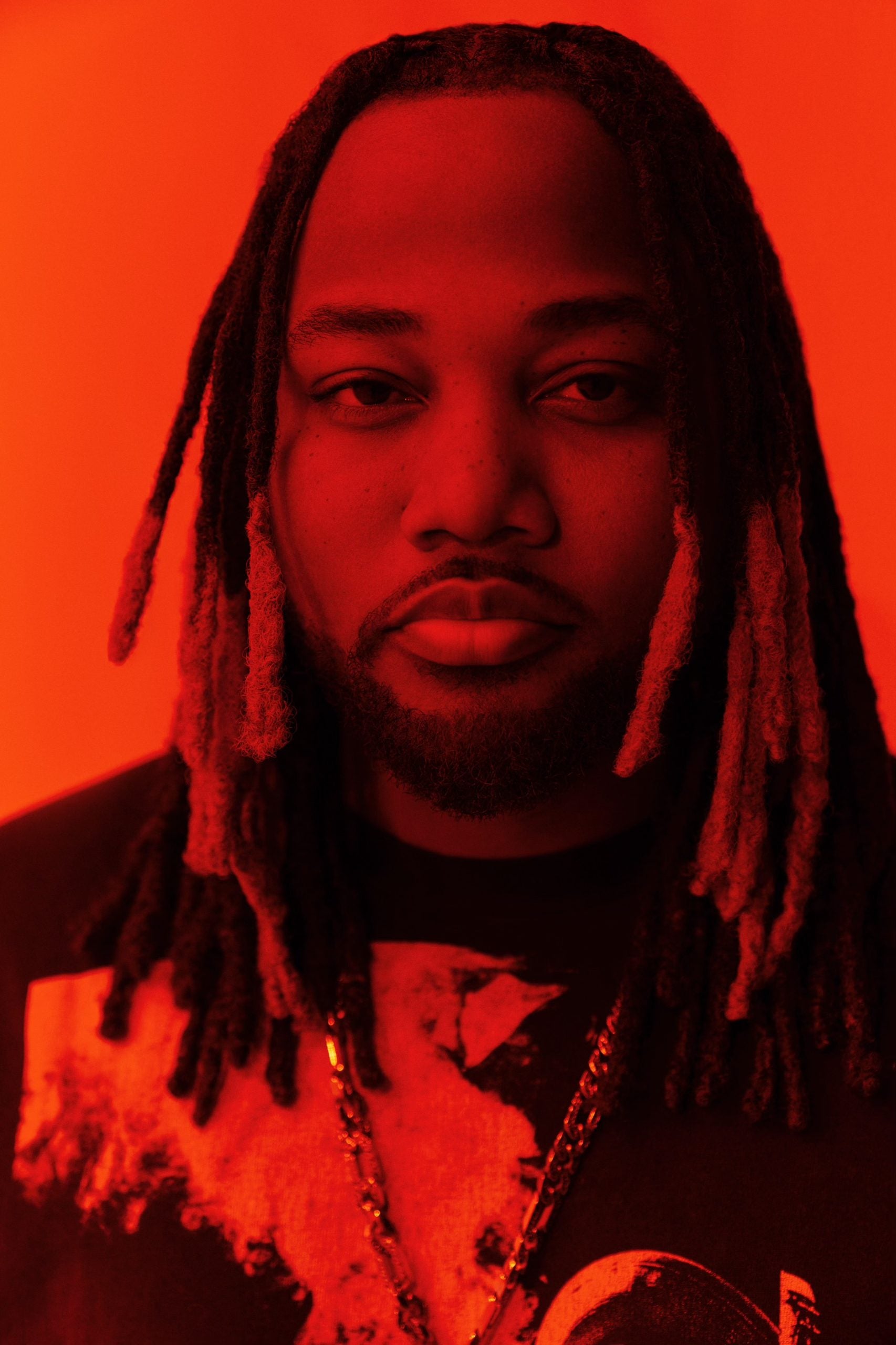Leon Thomas On ‘MUTT,’ Creativity And Charting His Next Chapter
Leon Thomas On ‘MUTT,’ Creativity And Charting His Next Chapter
https://www.essence.com/entertainment/leon-thomas-mutt-creativity-and-next-chapter/
 Photo Credit: Raymond Alva
Photo Credit: Raymond Alva By Okla Jones ·Updated December 11, 2024
Leon Thomas is redefining his narrative, and his journey has never been more electrifying. With the release of his sophomore album, MUTT, on September 27, he showcases a fearless dive into the complexities of love and human connection. The album, featuring collaborations with Masego, Baby Rose, and Ty Dolla $ign, among others, is a testament to his artistry—a blend of raw emotion, intricate production, and lyrical depth. Fresh off a Grammy win for his work on SZA’s “Snooze,” Leon’s momentum is unstoppable.
In an interview with ESSENCE, Leon reflected on his growth as an artist since his debut album, Electric Dusk. “This album is me stepping into my confidence,” he said. “It was a tough journey getting into music out of Nickelodeon during my twenties, but now, in my thirties, I’m showing people that I know what I’m doing—and I’m having a good time doing it.”
 Photo Credit: Raymond Alva
Photo Credit: Raymond Alva
Collaboration played a pivotal role in MUTT. “The majority of the features were done with the artist in the room,” Leon shared. Tracks like “Lucid Dreams” with Masego and “Feelings on Silent” with Wale emerged organically, born from creative chemistry rather than corporate matchmaking. “Every collaboration is a new class,” he added, emphasizing his commitment to learning from his peers.
Thomas recently wrapped up a successful run on Blxst’s North American tour, and he’s already setting his sights on the future. “Every album unlocks a new part of myself,” he said. With aspirations to channel live, jam-session energy reminiscent of Motown into his next project, he is poised to keep pushing boundaries—and audiences can’t wait to see where he goes next.
ESSENCE: You’ve traversed theater, television, film, and music. What is it that inspires Leon Thomas’s creativity? What does that creative spark and motivation come from?
Leon Thomas: I think a big part of it is family—family is a big thing. I come from a creative circle. I come from a tribe of artists. For me, music and art and entertainment is a way of life and a constant exploration. I feel like the keyword to all of this is next. So I’m always focused on my next mission and my next challenge.
You released your sophomore album a few months ago—it’s amazing. I wanted to ask you, how did your personal experience affect the creation of this project, and what message do you hope listeners take from it?
Well, I hope listeners really just take this as more of a cautionary tale. I feel like when it comes to dating in this generation, there’s just so many options. We have social media playing a big factor and role and everything. My grandfather was married to my grandmother at 20 years old, and they stayed married well into their eighties. She recently just passed away, but he dealt with a different time period, and I’m just documenting the challenges that we go through right now in this dating scene. I think a lot of it isn’t just my own experiences, it’s also me documenting the experiences I’ve seen with all of my friends as a collective, and just giving a voice to the challenges we face as men in this current generation.
How do you think—because you’ve recently celebrated the one-year anniversary of Electric Dusk—how do you think you’ve grown personally as well as creatively since the release of that album, if at all?
I feel like during the creation of Electric Dusk, the industry was validating my creative sound. There were certain artists who were messing with some of my records and putting them out and putting them on their albums. But since I’ve dropped Electric Dusk, I’ve had a chance to work with Ye, Drake, SZA. Huge, amazing artists, icons even, in my generation that have really kind of stamped the fact that my perspective and creativity is really something special. I feel like this album is me stepping into my confidence. It was a tough journey getting into music out of Nickelodeon over the course of the decade of my twenties. So I feel like the thirties is where I’m really just showing people that I know what I’m doing and I’m having a good time doing it.
So you spoke about some of your collaborations, but I want to speak specifically about the collaborations on this particular album. You have Wale, Masego, Ty Dolla $ign—it’s a diverse bunch of artists. How do you choose the people that you want to collaborate with on your projects?
What I really love about a lot of these records is that the majority of the features were done with the artist in the room. The majority of them. Masego was an amazing artist that I met and we became friends very quickly, but it took a while of us just seeing each other at parties before we actually decided, you know what? Let’s buckle down, right? Let’s schedule some time and see if we can knock out a record. I had two sessions that day, so we only had four hours to write “Lucid Dreams.” But seeing just how destiny put a lot of creative ideas in our head at the moment, it just turned into a beautiful record.
It was tailor-made, and it wasn’t our A&Rs trying to put us together or our labels trying to find a really good fit to get more exposure. It was two artists coming together and telling a really cool story, and that’s the journey of literally all of the features, from Wale, who I’ve become really good friends with. I go to his crib and we kick it and watch the game and then maybe try to get creative for something we’re doing or a project we’re doing later on. Spending a lot of time with Wale turned into “Feelings on Silent.” I’m learning so much from everybody around me. I’m a consistent student of the game and every collaboration is just a new class.
I’ve interviewed a lot of other artists just throughout the years, and say that things really change after you get that Grammy Award. In what ways has your perspective as an artist changed since you got a Grammy, and how do you feel about your placement in the industry since then?
It’s been a real pleasure getting to know the Grammy board, getting to know the Grammys as an organization outside of just the award show itself. Outside of just the award show itself, getting to know the whole process that they have has been amazing. I think the biggest thing that’s really changed is just that I don’t have a degree in music. I come from a family of artists and creatives, so I learned by experience. This gives everything that I’m doing creatively a new sense of validation, and I’m really super thankful for the opportunity to be able to have this wonderful award in my living room right now. I’m literally looking at it right now and it’s a blessing and every morning to see my hard work really come into fruition.
Expounding on that, how do you balance your roles as a producer and an artist?
That’s been a process and journey for me. “How do I schedule out my years so I have seasons of production and artist seasons where I’m really focused on myself and give myself the opportunity to really focus on all the aspects that can give me balance?” I feel like when I’m in my production mode, it’s okay to just be in my PJs making beats throughout the day, trying to just really find new sounds, create new ideas. But when I’m on artist mode, I really do my best to keep my days jam-packed with full schedules. So when we hit tour season, I’m not shell-shocked by the crazy, crazy schedules that end up popping up. So I need a three-month period to warm up into both fields. It’s not like a hard switch. I have to schedule it out now.
So when you’re in production mode, you like more solace and seclusion. When you’re in artist mode, you want to be in the mix a little more?
I’m in the mix a little bit more. I’m a little more outside, more networking. I’m bouncing around in different studios. But in my production bag, I’m pretty much at the crib making tracks. When I’m on call to go to a different country or state that an artist is working in, I might fly to Jamaica, or with Ye it was Italy. I spend time with that artist and get to know them and try to help the best way that I can to help tell their story.
Congratulations on wrapping up the tour—how was that experience, and what was the preparation process like?
This is a big switch up for me. I usually have a band, but with this run I’m going to be just with a DJ. We’ve been messing around with my set list to just make it more compatible for that format and just getting back into working the stage more again and having some fun. I’m playing bigger crowds than I usually play for a lot of my headline stuff. So just big movements. I’ve been running every morning, you know what I’m saying? Trying to get my two miles in so I win on that stage. You heard. I’m still a Husky nigga.
So, what’s next for Leon Thomas?
I feel like every album I unlock a new part of myself and then the next album is an opportunity to explore that new level I just unlocked. Seeing the live records I was able to do on this project, I’m really curious to see how people react to me having a room full of musicians on a song like I used to, and it being 100% a jam session that we formatted and turned into a song. That process, adjacent to neo-soul, adjacent to Motown Records, that live energy is what I really want to focus on for my next album, and I want to do a full projectrel=”tag”>Leon Thomas
The post Leon Thomas On ‘MUTT,’ Creativity And Charting His Next Chapter appeared first on Essence.
